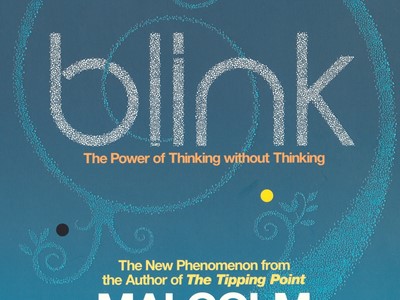
Blink: The Power of Thinking Without Thinking
I have previously read Malcom Gladwell’s latest book Talking With Strangers which fascinated me and his style of writing using multiple interviews and case studies to illustrate his points was really interesting so I sought out more of his work. The cultural commentary in his books describing how our brains and emotions drive our reactions is very interesting for me. Blink is about those moments when we ‘know’ something without knowing why, about being able to hone instinctual reactions to improve quick decision making. We call it our gut instinct but it is very much our brains according to the research that Gladwell describes in this book.
The stories are again really engaging and fascinating driving me onto the Internet to find out more about the stories he describes. There is the description of the Getty buying what it thought was a historical Greek kouros statue, which fooled the Getty scientists as it was fake. Art historians knew that something was off with the statue immediately that they saw it but could not describe why.
The other part of Blink confirmed for me the bias of how our eyes can also drive quick decision making that is in fact wrong. The classical music world never hired women in the horn section because apparently only men had the strength to play these instruments and no amount of expertise that women players showed could convince the male conductors that women should be included in orchestras. Then came the blind auditions and suddenly women were winning positions in orchestras – because the panel could not see the musician they concentrated on the playing.
"This is a timely reminder for us all that we have instinctive biases that affect our judgement and decision making."
- Jane Cowell
This is a timely reminder for us all that we have instinctive biases that affect our judgement and decision making. Being more self-aware of our unconscious bias will absolutely help us to assess situations, choices and decisions for improved outcomes. I was not convinced by Gladwell’s examples regarding instinctual decisions as the catastrophic Blink moments he also shares with us regarding police shootings and the bias that is involved in quick decision making actually made me more wary. Other reviewers of this work felt that Gladwell did not make a good argument for or against instinctual decisions but I thought that was a strength of the book because Gladwell allows you to make up your own mind.
I was very surprised (and shouldn’t have been) of the manipulation involved in marketing products that prompts impulsive buying and I will be much more analytical when I reach for that new product from now on! It was very interesting though that too much information/data can just confuse us and interfere with important decisions – there is a tipping point regarding just what you need to know to make a good decision. This was a very engaging read and I do recommend it to you. The social commentary and examples given are wide ranging and really interesting and the examples of being able to train the brain to make quick decisions in fraught, dangerous situations were very hopeful.
